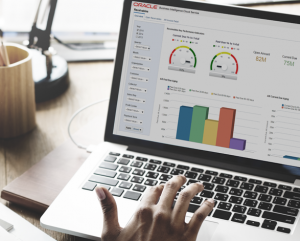Editor’s Note: This guest blog post comes courtesy of Gail Cole with Avalara.
Small businesses that sell through online marketplaces may qualify for a small seller exception under state economic nexus laws, but that doesn’t mean they’re always off the hook for sales tax.
In the nearly 30 states with economic nexus policies, retailers with no physical presence in the state are required to collect and remit sales tax after they reach a certain threshold of sales activity in the state, such as 200 sales transactions and/or $100,000 in gross revenue. Remote retailers not doing that level of business in the state don’t usually have an obligation to collect.
Guide to Oracle Cloud: 5 Steps to Ensure a Successful Move to the Cloud
Explore key considerations, integrating the cloud with legacy applications and challenges of current cloud implementations.
Yet many small businesses often sell through online marketplaces in addition to their own ecommerce sites, and these transactions may be subject to tax under marketplace sales tax laws.
Imposing specific sales tax collection obligations on marketplace facilitators and sellers is a relatively recent phenomenon. Most states didn’t realize such a distinction was necessary until after Amazon started collecting and remitting sales tax in all states. Only then did it become clear that while Amazon was charging tax on sales of its own products, it wasn’t taxing most of its marketplace or third-party sales.
The first marketplace sales tax laws were adopted before the Supreme Court of the United States ruled that states could tax remote sales (South Dakota v. Wayfair, Inc., June 21, 2018). Since that decision, states are scrambling to enact economic nexus policies like the one that led to the demise of the physical presence rule.
Yet twelve states have created marketplace sales tax laws as of this writing, including South Dakota. Seven of the laws are already in effect, the rest come online later this year or in early 2019. Thus, despite the predominance of economic nexus, marketplace sales tax laws should not be overlooked.
Learn more about marketplace sales tax laws in this Avalara blog.

